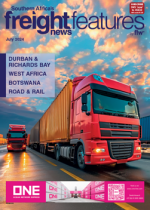Informal cross-border traders in Africa are confronted in many countries with illegal roadblocks where they have to pay bribes to continue.A study by the United Nations Economic Commission for Africa estimates that informal cross-border trade (ICBT) makes up between seven and 16% of formal intra-African continental trade f lows, and between 30 and 72% of formal trade between neighbouring countries.The volumes vary by region and are inf luenced by the quality of the road transport infrastructure, according to an African Continental Free Trade Area (AfCFTA) study. A separate West African study found that a truck carrying imported goods from Lomé (Togo) to Ouagadougou (Burkina Faso) would be stopped an average of 23 times on the 1 000km route. The traders paid an average of $36 for imports and $24 for exports at each illegal roadblock.The stops lengthened the trip by around two hours. Governments are trying to come to grips with the extent of informal trade volumes to better manage road and rail infrastructure. Rwanda’s Ministry of Trade and Industry has prioritised the upgrading of feeder roads to border towns to increase the supply of goods to cross-border markets. Improved road and rail links for both informal and formal trade are necessary for the rollout of AfCFTA.Continental guidelines for collecting ICBT statistics have been published by the African Union Institute for Statistics (Statafric), in partnership with the Pan African Statistics Programme II Service Contract.The development of continental methodological guidelines and frameworks is essential to make sure that merchandise trade statistics are developed on a harmonised basis across the continent and to enhance the coverage and quality of such statistics, according to Statafric.

